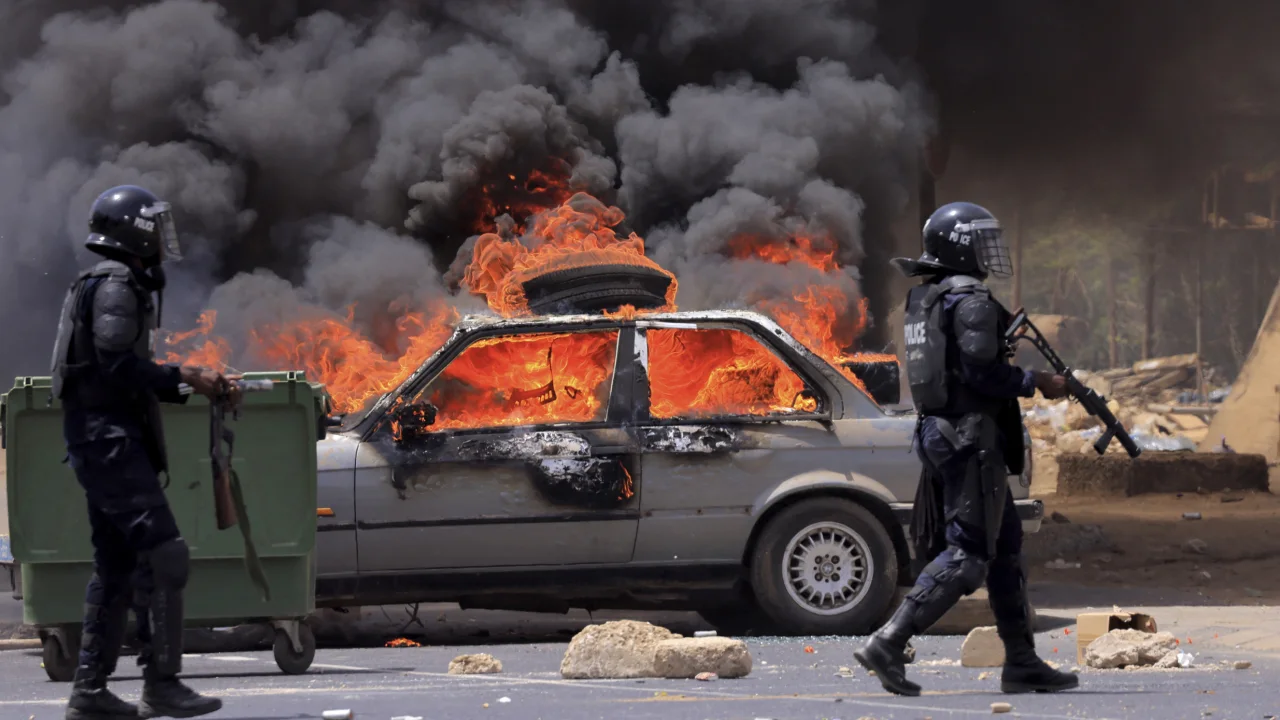Key takeaways:
- Following violent protests in the country, the Senegalese government has shut down Internet connectivity.
- NetBlocks estimates the cost impact of the Internet shutdown to be $332,502 per hour.
- The protests started after Senegal’s opposition leader, Ousmane Sonko, was sentenced to two years in prison for “corrupting the youths.”
- At least 15 people have been reported dead since the clash between police and protesters began on June 1, 2023.
The continuous clashes between police and protesters in Senegal have led to the death of 15 people and an Internet shutdown which is costing the country over $300,000 every hour.
People have been using #FreeSenegal to decry the country’s current situation on Twitter.
A Tweeter who tweeted at SpaceX CEO, Elon Musk, to provide Internet access to Starlink, was reportedly killed by security forces afterwards.
What started the protests?
Protests broke out in Senegal after political opposition leader, Ousmane Sonko was sentenced to two years in prison on June 1, 2023, for “corrupting the youths.”
Sonko’s supporters believe the case against him is politically motivated and the sentencing, done in his absence, was a ploy to get him not to run in the 2024 elections.
Al Jazeera’s Inside Story indicates Senagal’s youths aren’t pleased with Macky Sall’s administration and Sonko seems to be their preferred candidate.
“Supporters say the violence across the country reflects widespread anger, particularly among unemployed young people who feel ignored by the political elites.”
Someone who left the country a week before the protests turned deadly said Sonko was originally charged with raping a woman at a massage parlour in 2021, but later sentenced for “corrupting youths” after he was found innocent of the rape claims.
“Stop all activity and take to the streets!!!” was what this news article reported that Sonko’s political party told supporters after the verdict — which they consider a political plot — was announced.
Why did the government shut down the Internet?
“The State has decided to suspend mobile Internet which is experiencing disruptions among operators,” read a text message sent to a user by French telco, Orange Telecoms.
A user who is not currently in Senegal said it is impossible to reach anyone in the country as of press time.
“The Ministry of Communication, Telecommunications and the Digital Economy informs that due to the dissemination of hateful and subversive messages in a context of disturbance of public order in certain localities of the national territory, the Internet of mobile data is temporarily suspended during certain time slots. Telephone operators are required to comply with notified requisitions,” said the government about the shutdown.
Interestingly, the relatively peaceful West African nation shut down the Internet in 2021 after protests erupted following Sonko’s arrest.
NetBlocks, an organisation that maps Internet disruptions globally, confirmed on June 1, 2023, that Twitter, Facebook, WhatsApp, Instagram, and YouTube were inaccessible in the country.
How much is the shutdown costing Senegal?
Senegal loses $332,502 every hour to the Internet shutdown.
While social media platforms such as Facebook, Twitter, and Instagram were already down by June 1, 2023, the Senegalese government only announced it had cut access to mobile Internet on June 4, 2023.
Calculating the cost of the Internet shutdown since June 4, brings the total impact cost of the Internet shutdown to $23,940,155.
Senegal’s Internet shutdown is hurting both online and offline businesses and “The Dakar marketplace will lose its reputation for reliability and security, and billions of dollars are at stake,” said Emmanuel Boquet, a venture builder, to African Business.
What is the cost of Internet shutdowns in Africa?
Internet shutdowns are costly, and in 2022, cost the world $10 billion. Censoring or silencing protesters is not the only reason governments restrict social media or shut down the Internet. However, it is the primary reason.
In Africa, Ethiopia suffered the biggest loss ($179 million) from Internet shutdowns in 2022; Nigeria follows with $82.7 million. Sudan, Burkina Faso, and Zimbabwe also lost $17.8 million, $12.6 million, and $1.6 million, respectively.
In total, sub-Saharan Africa lost $295 million to Internet shutdowns in 2022, with 133 million people affected.
Featured image source: CNN





